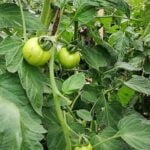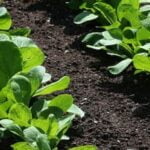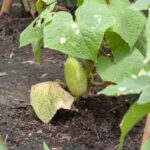A pre-emergent weed killer for vegetable gardens is an essential tool in maintaining a healthy and thriving garden. This type of weed killer is specifically designed to prevent weeds from germinating, making it an effective and proactive method of weed control. When it comes to ensuring the success of your vegetable garden, choosing the right pre-emergent weed killer is crucial.
As a vegetable gardener, it’s important to understand what pre-emergent weed killers are and why they play a vital role in the overall health of your garden. These products work by creating a barrier in the soil that prevents weed seeds from sprouting, ultimately reducing the need for constant weeding and maintenance. With the use of a pre-emergent weed killer, you can save time and effort while promoting optimal growth for your vegetable plants.
In this article, we’ll explore the different types of pre-emergent weed killers available for vegetable gardens, including organic and chemical options. We will also discuss the pros and cons of each type, as well as factors to consider when selecting the right product for your specific garden needs.
Additionally, we’ll cover best practices for applying pre-emergent weed killers, their effectiveness in preventing various types of weeds, and alternative methods for sustainable weed control. Whether you’re new to gardening or looking to enhance your current practices, understanding how pre-emergent weed killers can benefit your vegetable garden is essential knowledge for any green thumb.
Types of Pre-Emergent Weed Killers
When it comes to choosing a pre-emergent weed killer for your vegetable garden, there are various types to consider. These options include organic and chemical choices, each with their own set of pros and cons.
Organic pre-emergent weed killers are derived from natural ingredients such as corn gluten meal, vinegar, or essential oils. These products are safe for the environment, as well as for children and pets that may frequent the garden. However, organic options may not be as potent as chemical alternatives and may require more frequent applications.
On the other hand, chemical pre-emergent weed killers are formulated with synthetic ingredients designed to effectively prevent weed growth. They tend to have longer-lasting effects and may require fewer applications. However, there can be concerns about the impact of these chemicals on the environment and plant health.
When deciding between organic and chemical pre-emergent weed killers for your vegetable garden, it’s important to weigh the benefits and drawbacks of each type. Consider factors such as effectiveness, safety for edible plants, environmental impact, and your overall gardening goals. Ultimately, it’s crucial to select a product that aligns with your values and needs while effectively controlling weeds in your vegetable garden.
Selecting the Right Pre-Emergent Weed Killer
Choosing the right pre-emergent weed killer for your vegetable garden is crucial to ensure the health and productivity of your plants. With a wide range of options available, it’s important to consider various factors before making a selection.
Factors to Consider
When selecting a pre-emergent weed killer, factors such as the type of weeds in your area, soil type, and climate should be taken into account. Organic options may be preferable for those looking to minimize chemical exposure in their gardens, while chemical options may provide more immediate and targeted results. Additionally, consider the application frequency and longevity of the product to determine which option best suits your needs and abilities.
Compatibility With Vegetable Plants
It’s essential to choose a pre-emergent weed killer that is safe for use around vegetable plants. Some products may have specific instructions regarding the types of vegetables they can be used on, as well as waiting periods between application and planting. Always check the label and product information to ensure that the weed killer you choose is compatible with your specific vegetable garden.
Environmental Impact
Consider the environmental impact of the pre-emergent weed killer you select. Look for products that are labeled as environmentally friendly or have low toxicity levels. Researching the potential effects on beneficial insects, wildlife, and water sources can also help guide your decision-making process.
By carefully considering these factors, you can make an informed choice when selecting a pre-emergent weed killer for your vegetable garden. Keep in mind that what works for one garden may not work for another, so it’s important to assess your unique situation before making a decision.
Sustainability
For those concerned about sustainability, there are eco-friendly pre-emergent weed killers made from natural ingredients that can effectively control weeds in vegetable gardens without harming the environment or beneficial organisms.
Remember that using pre-emergent weed killers is just one method of managing weeds in vegetable gardens. It’s vital to employ good gardening practices such as mulching, proper watering, and regular maintenance alongside any weed control method.
Application of Pre-Emergent Weed Killer
Applying pre-emergent weed killer to your vegetable garden is an essential step in maintaining a healthy and productive crop. Here are some best practices for applying the product:
- Timing is key: It’s important to apply the pre-emergent weed killer at the right time to be effective. This is usually done in early spring before weed seeds start to germinate, but it can vary depending on your location and climate.
- Proper application: Read the label of the pre-emergent weed killer carefully and follow the instructions for application. Whether it’s a granular or liquid form, make sure to evenly distribute the product across the soil.
- Watering after application: After applying the pre-emergent weed killer, it’s crucial to water your garden lightly. This helps activate the herbicide and ensures that it reaches the root zone of the weeds.
When using any type of herbicide in your vegetable garden, safety precautions are important to consider:
- Wear protective gear: Always wear gloves, long sleeves, pants, and closed-toe shoes when handling and applying pre-emergent weed killer. This prevents direct contact with skin and reduces inhalation exposure.
- Keep children and pets away: To avoid accidental ingestion or exposure, keep children and pets away from the treated area until the pre-emergent weed killer has dried completely.
- Proper storage: Store any leftover product in its original container with a secured lid, away from food items and out of reach of children and pets.
Following these guidelines will help you effectively apply pre-emergent weed killer while prioritizing safety for yourself, loved ones, and the environment around your vegetable garden. Remember that always read and follow all label directions and precautions before using any herbicide product.
Effectiveness of Pre-Emergent Weed Killers
Pre-emergent weed killers are an effective method for controlling weeds in vegetable gardens. These products work by preventing the germination of weed seeds, making it easier to keep garden beds free from unwanted plants. However, it’s important to understand how effective pre-emergent weed killers are and what factors can influence their performance.
Duration of Effectiveness
One of the key considerations when using a pre-emergent weed killer is how long it will remain effective in preventing weed growth. The duration of effectiveness can vary depending on the specific product and environmental conditions. Some pre-emergent weed killers may provide protection for several months, while others may require more frequent applications. It’s important to follow the manufacturer’s recommendations for reapplication to ensure continued effectiveness.
Types of Weeds Controlled
While pre-emergent weed killers can be highly effective at preventing many common garden weeds, they may not provide complete control over all types of weeds. Some products are designed to target specific types of weeds, so it’s important to choose a weed killer that is appropriate for the types of weeds commonly found in vegetable gardens.
It’s also worth noting that pre-emergent weed killers may not be as effective against perennial weeds or those with deep taproots.
Effect on Vegetables
Another factor to consider regarding the effectiveness of pre-emergent weed killers is their impact on vegetable plants. While these products are designed to inhibit the growth of weed seeds, they can also affect the germination and growth of vegetable seeds. Care should be taken to select a pre-emergent weed killer that is safe for use around vegetables and won’t harm or inhibit the growth of desirable plants.
When considering the effectiveness of pre-emergent weed killers, it’s important to weigh their benefits against any potential drawbacks and limitations. Understanding how long a product remains effective, its ability to prevent different types of weeds, and its impact on vegetable plants can help gardeners make informed decisions about using these products in their vegetable gardens.
Alternatives to Pre-Emergent Weed Killers
When it comes to maintaining a healthy and bountiful vegetable garden, using a pre-emergent weed killer is not the only option for preventing the growth of unwanted weeds. There are several natural and sustainable alternatives that can be just as effective without the use of chemicals that could potentially harm your vegetable plants.
One effective alternative to a pre-emergent weed killer for vegetable gardens is mulching. Mulch acts as a barrier between the soil and sunlight, preventing weed seeds from germinating and growing. Organic mulch materials such as wood chips, straw, or compost can also help improve soil quality while suppressing weed growth. Additionally, mulching can help retain moisture in the soil and regulate temperature, creating an ideal environment for vegetable plants to thrive.
Another alternative to chemical pre-emergent weed killers is hand weeding. While it may be more labor-intensive, hand weeding allows for precise removal of weeds without harming your vegetable plants. This method also gives you the opportunity to inspect your garden closely and address any potential issues before they become larger problems.
Lastly, using cover crops is another effective alternative to using pre-emergent weed killers in vegetable gardens. Cover crops not only serve as a natural way to suppress weeds by shading the soil but also can improve soil fertility and structure. Legumes like clover or vetch can also fix nitrogen in the soil, benefitting future vegetable crops.
| Alternative | Effectiveness |
|---|---|
| Mulching | Effective at suppressing weed growth and improving soil quality |
| Hand Weeding | Labor-intensive but precise method of removing weeds without chemicals |
| Cover Crops | Natural way to suppress weeds while improving soil fertility |
Common Mistakes to Avoid When Using Pre-Emergent Weed Killers
When using a pre-emergent weed killer for vegetable gardens, it’s important to be aware of some common mistakes that can occur during the application process. One of the most common mistakes is over-application of the product.
It’s crucial to follow the manufacturer’s recommended dosage and not exceed it, as over-application can harm the vegetable plants in your garden. Additionally, overuse of pre-emergent weed killers can damage the soil structure and disrupt the natural balance of microorganisms.
Another mistake to avoid is incorrect timing of application. Pre-emergent weed killers should be applied before the weeds germinate, as they are not effective once the weeds have already emerged. It’s important to pay attention to the specific instructions for each type of weed killer and apply it at the right time for optimal results.
Furthermore, it’s essential to take safety precautions while applying pre-emergent weed killers in your vegetable garden. Wearing protective clothing, gloves, and a mask can help prevent skin contact or inhalation of harmful chemicals. It’s also advisable to keep children and pets away from treated areas until the product has dried completely.
| Common Mistakes | Precautions |
|---|---|
| Over-application | Follow manufacturer’s recommended dosage |
| Incorrect timing | Apply before weeds germinate |
| Safety precautions | Wear protective clothing, gloves, and a mask |
By avoiding these common mistakes and following best practices for applying pre-emergent weed killers, you can effectively maintain a weed-free vegetable garden without causing harm to your crops or the environment.
Conclusion
In conclusion, using a pre-emergent weed killer for vegetable gardens can be highly beneficial in maintaining a healthy and productive garden. Whether you opt for an organic or chemical option, these products can effectively prevent weeds from sprouting and competing with your vegetable plants for essential nutrients and water. However, it is important to carefully select the right pre-emergent weed killer that is compatible with your specific vegetable crops to avoid any potential harm.
When considering the application of pre-emergent weed killers, it is crucial to follow best practices and safety precautions. This includes applying the product at the right time and in the proper manner to ensure its effectiveness while minimizing any risks to your vegetable plants or the environment. Additionally, it is important to avoid common mistakes such as over-application or incorrect timing, which could compromise the success of using a pre-emergent weed killer.
In summary, while there are natural alternatives and sustainable methods for weed control in vegetable gardens, using a pre-emergent weed killer can provide an efficient solution for preventing weeds. By understanding the various types of weed killers, their effectiveness, and how to use them properly, you can help maintain a thriving and flourishing vegetable garden throughout the growing season.
Frequently Asked Questions
Is Pre-Emergent Weed Killer Safe for Vegetable Gardens?
Pre-emergent weed killers can be safe for vegetable gardens if used properly. It’s important to read the labels and choose products specifically designed for use around vegetables, following all instructions and precautions.
What Weed Killer Is Safe for Vegetable Gardens?
Selective herbicides like those containing active ingredients such as glyphosate, pelargonic acid, or acetic acid are generally considered safe for vegetable gardens when used according to label directions. These products target weeds without harming surrounding vegetables.
How Do I Kill Weeds in My Garden Without Killing Vegetables?
To kill weeds in your garden without killing vegetables, manual methods like hand-pulling, hoeing, or mulching can be effective. Additionally, using natural homemade weed killers like vinegar or boiling water can selectively target weeds without damaging your vegetables’ growth.

If you’re looking to get into vegetable gardening, or are just looking for some tips on how to make your current garden better, then you’ve come to the right place! My name is Ethel and I have been gardening for years. In this blog, I’m going to share with you some of my best tips on how to create a successful vegetable garden.





